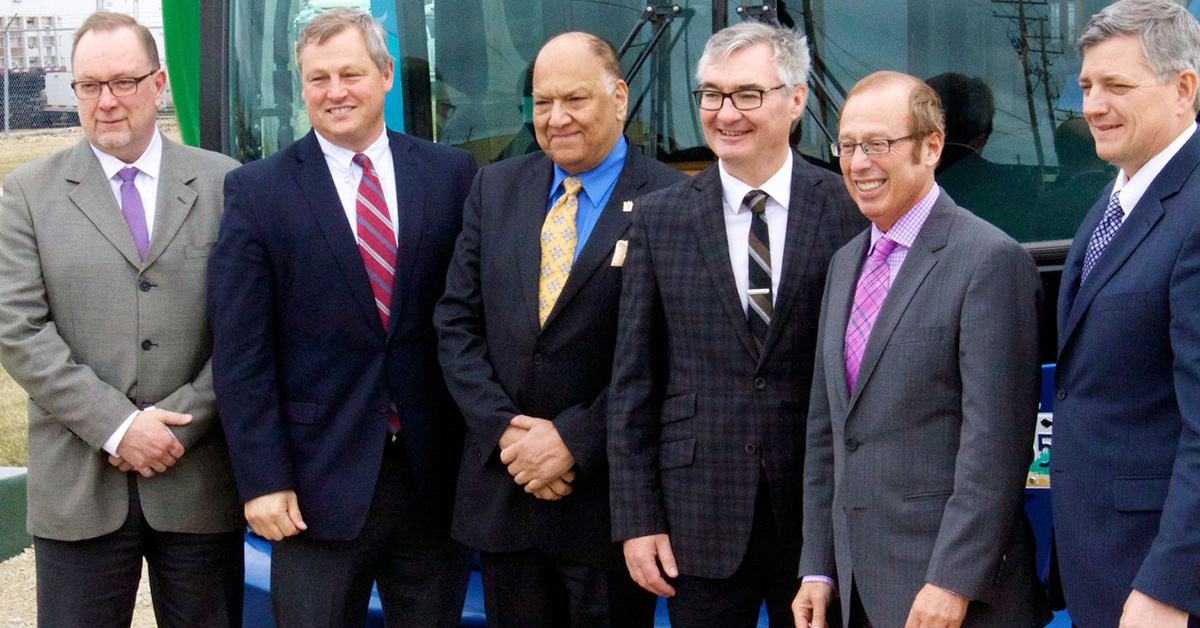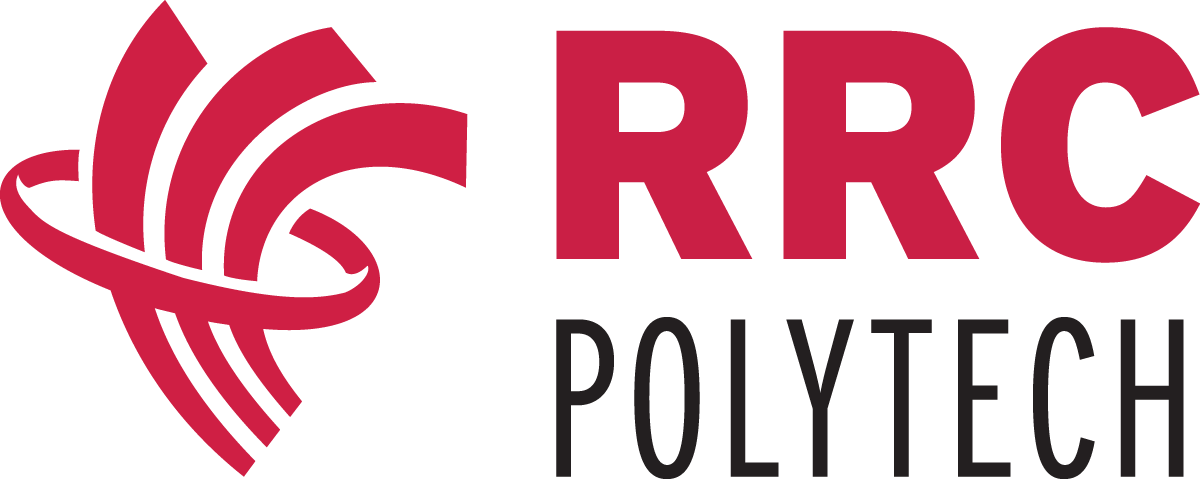Electric vehicles hold great promise for reducing reliance on fossil fuels for public transportation around the world. But batteries and recharging facilities need to be more efficient to make the technology economically viable.
In 2014, Red River College (RRC), working with partners Mitsubishi Heavy Industries and Manitoba Hydro, made a major step towards making electric public transit possible. They developed and tested a prototype of an all-electric zero-emissions transit bus and rapid charger system in Winnipeg’s harsh winter conditions. The project has since moved to full production and field demonstration, bringing four more buses into service with Winnipeg Transit.
RRC’s research staff, students and instructors – through the College’s Electric Vehicle Technology & Education Centre – modified and integrated 24 Mitsubishi Heavy Industry battery packs to meet space constraints for two prototype New Flyer buses for the demonstration phase with Winnipeg Transit.
“This electric bus project is a key element in Manitoba’s Clean Energy Strategy and supports our commitment to reduce greenhouse gas emissions and promote the use of effective, cost efficient, renewable energy,” said Eric Robinson, Minister responsible for Manitoba Hydro. “Our innovative advancements in clean energy technologies have contributed to our placement as the first in Canada to employ the new, unique on-route rapid charging system, promoting affordable public transportation and electric vehicle knowledge which will create jobs.”
Red River College is a partner in an international consortium with Mitsubishi Heavy Industries, New Flyer Industries, Manitoba Hydro and the Province of Manitoba to develop an all-electric transit bus and rapid charger. The project has been supported by Sustainable Development Technology Canada, the City of Winnipeg, Manitoba’s Vehicle Technology Centre and a CCI Applied Research and Development grant.


